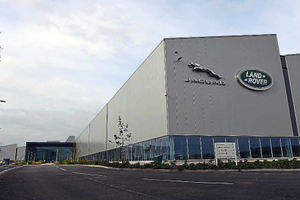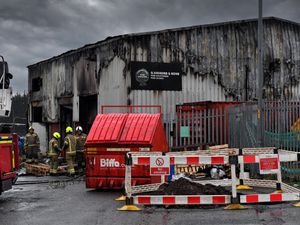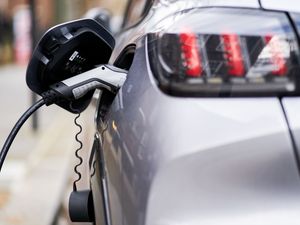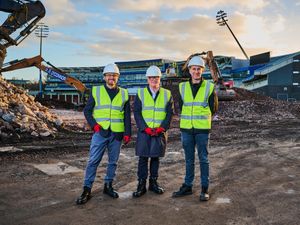UK car sales still falling as Jaguar Land Rover workers return
Sales jumped for the car giant in latest figures - bucking the trend of recent months
As the 9,000 workers at Jaguar Land Rover's Solihull plant return to work after a two-week shutdown, latest figures show a surprise jump in the company's UK car sales figures last month.
Despite its production slowdown, September proved a bumper sales month with demand for its Jaguars almost doubling, up 80 per cent to 3,324 and Land Rover sales up almost 32 per cent to 6,942, flying in the face of the trends of recent months that has seen demand sliding for the UK's biggest car maker.
Jaguar Land Rover boss Ralf Speth has blamed the Government's taxing of diesels for the company's decision to lay off 1,000 agency workers earlier this year.
While Solihull is back at work this week, around 2,000 people at Jaguar's Castle Bromwich factory will remain on a three-day week until Christmas.
JLR says none of the production slowdowns have affected its engine plant on Wolverhampton's i54 site, where around 1,800 people work, but 4,000 supply chain and warehouse workers at DHL sites in the Midlands were also laid off for a fortnight alongside JLR's Solihull workers. Both sets of workers are being paid for the two weeks.

The decision of the UK's biggest car maker to slow or suspend production is already having an impact on the hundreds of supplier companies around the West Midlands that rely on Jaguar Land Rover for regular work.
Some have laid off their own agency workers or delayed plans for fresh investment or expansion.
But nationwide the car industry has seen sales fall again, although October's 2.9 per cent drop in sales is an improvement on the 21 per cent slump in September.
The latest figures from the Society of Motor Manufacturers and Traders (SMMT) show demand for diesels is continuing to shrink and car sales nationwide so far this year are down 7.2 per cent, to 2,064,419, after September's sales of 153,599.
Alongside the slide in diesels, the SMMT blamed model changes and continuing backlogs at test houses conducting tough new WLTP emissions for causing shortages across some brands.
Despite the introduction of new, low emission diesels, the SMMT blamed continuing uncertainty over government policy for the continuing drop in demand. Petrol car sales were up seven per cent while hybrids and electric cars showed strong growth, up almost 31 per cent.
Mike Hawes, chief executive of the SMMT, said, “Vehicle Excise Duty upheaval, regulatory changes and confusion over diesel have all made their mark on the market this year so it’s good to see plug-in registrations buck the trend.
"Demand is still far from the levels needed to offset losses elsewhere, however, and is making government’s decision to remove purchase incentives even more baffling.
“We’ve always said that world-class ambitions require world-class incentives and, even before the cuts to the grant, those ambitions were challenging. We need policies that encourage rather than confuse.
"Government’s forthcoming review of WLTP’s impact on taxation must ensure that buyers of the latest, cleanest cars are not unfairly penalised else we will see older, more polluting cars remain on the road for longer.”
The car industry has already expressed concerns over the Government's decision to cut the Plug-in Car Grant for electric cars and withdraw it completely for plug-in hybrids.
The SMMT has just published new industry forecasts for Alternatively Fueled Vehicles (AFV) demand, with registrations expected to grow +82.5 per cent from 2017 levels by 2020. Similar growth (+88.3 per cent) is projected for plug-in electric cars, with 92,620 new plug-in hybrid and battery electric cars expected to be sold in the same year – taking market share to around four per cent.This is at the lower end of government’s three to seven per cent stated ambition, with cuts to the Grant further undermining industry’s ability to deliver this ambition.
In the year to date, the overall new car sector remains down 7.2 per cent on the same period last year, albeit with more than two million new cars registered in the first 10 months of 2018. Pending no further market disruption, the SMMT is hoping for 'some pull-back' during the remainder of the year as current supply issues ease, enabling manufacturers to cater for pent up demand on certain models.





